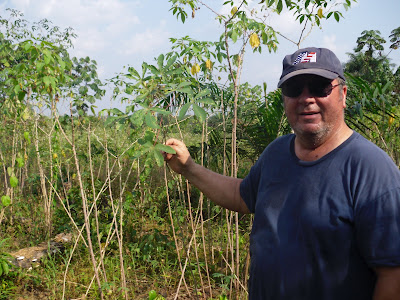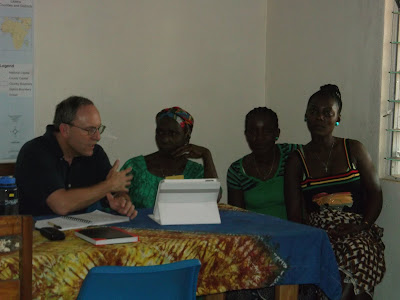Africa is taking command of its future by tackling an ancient plague: malaria.
Supported by the lessons learned from the decade to "roll back malaria," which produced a 33 percent decline in malaria deaths in Africa between 2000 and 2010, 41 African presidents have now signed on to end deaths from the disease in their home countries as part of the African Leaders Malaria Alliance (ALMA).
ALMA is a great illustration of President Barack Obama's pronouncement, made before the parliament in Ghana in 2009, that "Africa's future is up to Africans." The world's support is indispensable, but Africa is getting the job done through mutual accountability, innovation, and collaborative problem solving.
Recently, I committed to weaning Liberia off foreign aid in the next decade. For other African countries, it will take a bit longer, but with sound policies, genuine leadership, and reliable partnership from the world, I believe Africa can be free of the need for development assistance in a generation.
Until that day, we must commit ourselves to ensuring that foreign aid dollars are well spent. That's why African nations have agreed to publish their progress (and setbacks) in the fight against malaria via the ALMA Scorecard for Accountability and Action (updated quarterly at ALMA2015.org).
This week in Addis-Ababa, Ethiopia, I will assume the Chairmanship of ALMA, and I want to begin by thanking my predecessor, the founding chairman of ALMA, President Jakaya Kikwete of Tanzania, for his vision, leadership, and service.
During his two year tenure -- and thanks to the generous support of the American people and institutions they help fund like the World Bank and the Global Fund to Fight Aids, Tuberculosis, and Malaria -- Africa has witnessed an unprecedented increase in the delivery and use of life-saving tools in the fight against malaria: insecticide-treated mosquito nets, targeted spraying, rapid diagnostic tests, and effective treatments, including preventative care during pregnancy.
Despite this encouraging progress, much work remains to be done. So I want to make the case for why Africa's future depends on winning this fight -- and why it is should matter to all of us.
If you care about the health of mothers and children, you must care about malaria.
Malaria is one of the top three killers of children under the age of five in Africa, claiming a young life every minute. It is a nightmare for parents: in the morning, your child can be laughing and playing, seemingly healthy. By nightfall, she can be fevered and comatose, fighting for her life.
In this age of modern medical advances, it is simply unacceptable for a child to die from a mosquito bite, but help is on the way. In clinical trials, a new malaria vaccine protected over half the children who received it. If, as expected, the vaccine is licensed for use in a few years, it won't replace the need for bed nets, but it will mean that more mothers will be spared the horror of watching their child die from a preventable disease.
If you care about education, you must care about malaria.
Malaria alone accounts for 50 percent of preventable absenteeism in African schools, causing up to 10 million missed days each year. Severe cases in childhood can inflict permanent neurological damage, and babies born to pregnant women who contract malaria are at risk of low birth weight and lasting learning disabilities. Simply put, we cannot train Africa's next generation effectively if we do not protect them from malaria.
If you care about peace -- and the prosperity of every woman, child and community -- you must care about malaria.
Just as deadly mosquitoes suck the blood from our children, malaria drains the lifeblood from our economies, and with it, hope and opportunity from our lives. Most adult cases of malaria don't end in death, but they do keep entrepreneurs from their businesses, farmers from their fields, and market traders from their stalls. The disease costs Africa an estimated $12 billion a year in lost productivity.
But to understand malaria's true impact, consider that the disease can rob individual families in poorer communities of as much as 25 percent of their disposable income. By controlling malaria we eliminate a major obstacle to sustainable economic development and stability in Africa.
Africa must demonstrate its own commitment to this outcome by expanding domestic funding of health. Innovative finance approaches -- such as pooled commodity procurement or airport surcharges -- will be a major topic of discussion at the ALMA meeting this week. We should also commit to using the resources in hand, including investments made in our countries by the World Bank, to fuel continued progress in the malaria fight.
Of course, Africa's challenges don't end with malaria. That's why I look forward to working with my fellow African leaders to broaden ALMA's mission to other issues that affect maternal and child health.
Although President Obama was speaking to Africa that day in Ghana two years ago, he was speaking about all of us. "Your prosperity can expand America's," he said. "Your health and security can contribute to the world's. And the strength of your democracy can help advance human rights for people everywhere."
Africa's future is up to Africans, yet our mission belongs to the world.
Ellen Johnson Sirleaf, the president of Liberia, was a recipient of the 2011 Nobel Peace Prize.










































